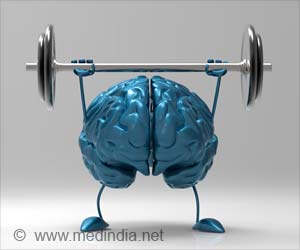Physical activities improve blood flow to the brain, helps the bodies detoxify and could ward off addiction, depression, stress and even Alzheimer's, say researchers.
Physical activities improve blood flow to the brain, helps the bodies detoxify and could ward off addiction, depression, stress and even Alzheimer's, say researchers.
"Exercise improves thinking and mental function and decreases your tendency toward addiction," Marc Siegel, associate professor of medicine at the New York University of Medicine, was quoted as saying by health portal Health Central."Studies have shown that it works better than some drugs. It's also a great anti-anxiety intervention," said James Maddux, professor of psychology at George Mason University in Fairfax, and an expert on the mind-body health connection.
Aerobic exercises like running or swimming can lead to a healthy release of the body's natural opiates, neurochemicals called endorphins. According to Siegel, these are natural stress-busters, but exercise's impact on stress goes "way beyond endorphins".
"Exercise is a ritualistic activity that redirects your energy," said Siegel, who is also the author of a book on worry and stress called "False Alarm: The Truth About the Epidemic of Fear".
"Stress is a build-up of inactivity, of over-thinking without release," he said. "But exercise gives you a physical release that diminishes that psychic frustration."
For many people, exercise also provides a valuable sense of control over their physical health. "It's that sense of a loss of control that can lead to stress," Siegel said.
Advertisement
Researchers say that regular workouts could even help smokers beat their addiction.
Advertisement
SRM











